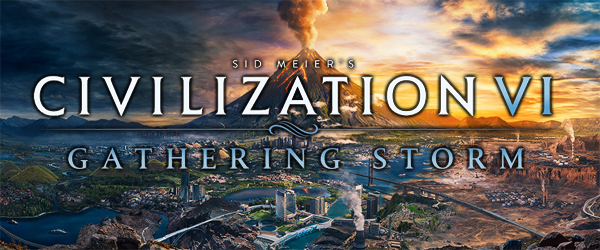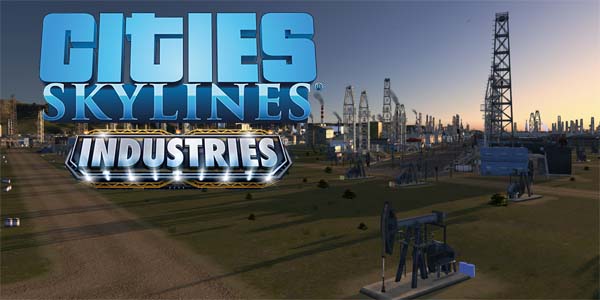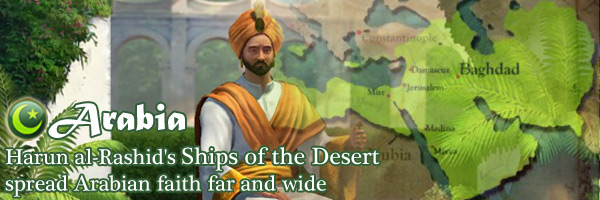I recently played an indie sci-fi game on the PS5 titled Deliver Us The Moon. It was alright. I rather liked the story, and most of the methods that the game uses to deliver that story. It's very similar to Tacoma in terms of how it tells its story, but with a greater emphasis on player-driven problem-solving and puzzles. It's biggest problem, however, is the surprisingly poor performance and frequent technical problems. Even on the PS5, this borderline walking sim was barely able to keep a steady framerate, and I experienced multiple hard crashes.
That being said, I still recommend it for gamers who happen to be fans of hard science fiction, because our options in that particular sub-genre are fairly limited. We have butt-loads of fantasy sci-fi games about space marines shooting aliens or robots, or about dog-fighting in outer space. You know, you're Mass Effects, Halos, Dead Spaces, StarCrafts, Colony Wars, and so on (remember Colony Wars? Man that would be an excellent candidate for a reboot on modern consoles, especially if it includes full VR support!). These are the games that are "sci-fi" in the same way that Star Wars or Transformers or pretty much any comic book movie are "sci-fi" movies.
But as far as the video game equivalents of harder sci-fi movies like 2001: A Space Odyssey or Arrival or Close Encounters of the Third Kind, the well is considerably drier, and most of what we do have is relegated to smaller indie titles. Don't get me wrong, we have some great options! Games like Soma and Outer Wilds are some of my favorite games ever.
So when I see a hard sci-fi game like Deliver Us The Moon pop up on a gaming storefront, I try to make an effort to play it. There's plenty of total flops in this sub-genre, but there's also some real gems. And I think that if Deliver Us The Moon could have its performance stabilized, it might qualify as one of those gems. But this video isn't a review of Deliver Us The Moon. I have a full written review on my personal blog at www.MegaBearsFan.net, if you want to read it. Instead, I want take a few minutes to dive into one particular aspect of the story and premise of Deliver Us The Moon that just kind of grinds my gears. It's a problem that I've seen repeated multiple games and movies that try to address this particular socio-political topic, and I worry that it might be doing more harm than good to the public's perception of this issue.
A big issue that I have with Deliver Us The Moon is its near-future depiction of apocalyptic climate change.
This essay was released early to Patrons in video format.
[More]
ed171323-1344-4cf6-951f-5afe7ab65827|1|5.0
Tags:climate change, science-denial, carbon dioxide, greenhouse gas, desertification, regulation, Deliver Us The Moon, The Day After Tomorrow, oil, tobacco, acid rain, ozone layer, potholer54, Peter Hadfield, Health In Harmony

This past weekend, I put up my review of Gathering Storm, the new expansion for Civilization VI. The overall summary is that I felt very "meh" about the game's headline features, but was actually impressed by how the smaller, more subtle changes really improve the underlying game. That review focused on a lot of the high-level concepts of the game, and was already starting to get rather long (my readers all know how verbose I can be). I decided to cut a lot of my smaller criticisms of individual mechanics or functionality out of that review, and save them for their own separate post.
So now that you all know how I feel about the expansion overall, here's some of my smaller nags and nitpicks (and suggestions for resolving them) that I hope can be resolved by some post-release patches.
Table of contents
Civs who don't pollute should gain Diplomatic Favor
[More]
648e5396-2c29-4d24-8cbc-3a47e3e48539|1|5.0
Tags:Sid Meier's Civilization, Civilization VI, Civilization VI: Gathering Storm, weather, disaster, flood, world congress, diplomatic favor, strategic resource, oil, iron, coal, user interface

Wow, Colossal Order is really popping out these Cities: Skylines expansions in rapid succession! I feel like this is the third or fourth expansion in the last year alone! ... Hold on, let me check ...
| Expansion title | Original release |
 | After Dark | 24 September 2015 |
 | Snowfall | 18 February 2016 |
 | Match Day* | 9 June 2016 |
 | Natural Disasters | 29 November 2016 |
 | Mass Transit | 18 May 2017 |
 | Concerts* | 17 August 2017 |
 | Green Cities | 19 October 2017 |
 | Parklife | 24 May 2018 |
 | Industries | 23 October 2018 |
| * denotes a mini content pack, rather than full expansion. |
... So, yeah; third full expansion in the last 12 months (give or take a few days). Fourth expansion in the last 14 months if you want to count the Concerts content pack. Colossal Order seems to have been following a pattern of two full expansions and a mini content pack each year since the game released. I guess that's one way to keep your game relevant. It has certainly kept me coming back every few months.
Never as robust as I would like
The problem is that the limited development time means that the content that is provided in these expansions rarely ever feels as robust or comprehensive as it should -- at least, not to me. As such, I feel like I'm getting diminishing returns from each new expansion. The amount of content that is already in the game means that each new expansion feels like relatively smaller drop of content into an already-large bucket. Each expansion feels like it gives us less to do, and has that much of a smaller impact on the overall gameplay experience.
Adding to the problem of diminishing returns: every single expansion has had some glaring omission or weakness that bothered me, and none of the later expansions have bothered to go back in and address the weaknesses and limitations of the previous expansion(s). After Dark failed to include zoneable public beaches and didn't really make the day/night cycle feel as meaningful as it should. Snowfall failed to include season cycles to go along with After Dark's day/night cycle, and completely dropped the ball with regard to mechanics like ski resorts. Natural Disasters probably felt like the most "complete" and well-rounded expansion (not to mention the most novel one), but still suffers from its content being random, and it neglected to introduce any winter-specific disasters to go along with Snowfall.
Industries follows a long-standing trend with Skylines expansions neglecting seemingly-obvious features.
Mass Transit brought the long-overdue ferry transit option, but neglected to revise cargo harbors to make cargo ship routes more practical, and didn't have any water-based city services (like a coast guard, for example) that would allow a true island economy to function without a network of bridges for freight and emergency services. Green Cities was maybe the laziest expansion, and it focused on pollution-management, but didn't bother to actually make pollution any more relevant or challenging to begin with. Lastly, Parklife granted a lot of player expression, but failed to incorporate the legacy parks into the new modular park feature and doesn't allow the camera to zoom in close enough to get a good look at your pretty decorations.
This isn't to say that all these expansions are "bad". I've liked them all (except maybe for Snowfall and Green Cities), but none of them have really wow-ed me with their content (except maybe for Natural Disasters). And the modular nature of each expansion means that it has limited-to-no impact on the core game systems, and limited-to-no interaction with the previous expansions.
The latest expansion, Industries follows suit. It promises to re-invent the way that your cities' industry functions, but kind of does it in an almost half-assed way. Much like the expansion before it, Parklife, Industries doesn't really incorporate the old legacy industry zones into the new industry mechanics. The new "Industry Area" paintbrush is virtually the same mechanic as the Park Area paintbrush from the last expansion. It isn't a replacement for the original industrial district specialization, so if feels like it's pretty much duplicating that content rather than re-inventing it.
You paint an area as an "Industrial Park", just like the parks in Parklife.
... [More]
e7bfb680-e9c4-4e53-a202-52f87d32d445|3|3.7
Tags:Cities: Skylines, Cities: Skylines: Industries, Colossal Order, Paradox Interactive, city, city planner, city simulation, Cities: Skylines: Parklife, Cities: Skylines: After Dark, industry, pollution, natural resources, resources, production chain, district, farm, timber, lumber, ore, mining, oil, drilling, leisure, commerce

Continuing my series of strategy posts about Brave New World's modified civilizations, I'm going to take a look at strategies for Arabia. Arabia received a modest revision in Brave New World out of the box, having its national trait moderately redesigned. The old city connection economic focus has been regeared towards Brave New World's new trade route mechanic, and a religious buff was also added to make this civ more compelling for Gods & Kings mechanics.
The majority of the Arabian peninsula is harsh desert, and so massive human settlement did not begin until the rise of the Islamic empires of the middle ages. In the early seventh century, the Prophet Muhammad began preaching the tenets of Islam in Mecca and Medina, which united several Arabian tribes and led to the establishment of the Caliphate, an Islamic empire that began to extend its influence across the peninsula and beyond. In the mid seventh century, the Caliphate began conquering territory from the Byzantine empire and they completely destroyed the once-powerful Persian empire that had dominated the region since antiquity. At its height, the Caliphate extended from Portugal, Spain, and Morocco in the west, all the way to the borders of India in the east. Arabia's position as a crossroads between west and east made it a center for powerful trading hubs, and Arabian engineers and scientists developed advanced new mathematical concepts. Goods, knowledge, and religious beliefs from both ends of the known world (and beyond) often passed through Arabian trading bazaars, and much of the knowledge of the classical Greeks and Romans were preserved by Islamic scholars, eventually contributing to the European Renaissance centuries later.

Harun al-Rashid ruled during the mid eighth century during the Caliphate's golden age. He has been strongly romanticized by Arabian authors and scholars, and has even been mythologized in tales included in the Book of One Thousand and One Nights. He was known as a sharp political, intellectual, and military mind, but it is difficult to separate factual accounts from fictitious ones. Even his exact birth date is debatable. He was Caliph during one of the greatest periods of expansion of the early caliphates, but he also almost destroyed the Caliphate by dividing the empire among his sons instead of naming a single heir. This led to prolonged civil war between the sons, but the Caliphate did survive the turmoil.
[More]
91119a55-7a39-4ebe-9d91-07545ab26c34|3|5.0
Tags:Sid Meier's Civilization, Civilization V: Brave New World, Civilization V, ranged mounted unit, bazaar, Arabia, Harun al-Rashid, Ships of the Desert, Camel Archer, luxury resource, trade, trade route, caravan, cargo ship, religion, religious pressure, Religious Texts, Grand Temple, Market, Knight, Indonesia, oil, oasis, Civ-V
|

| 12 | | | | | | | 60 | | 11 | | | | | | | 55 | | 10 | | | | | | | 50 | | 09 | | | | | | | 45 | | 08 | | | | | | | 40 | | 07 | | | | | | | 35 | | 06 | | | | | | | 30 | | 05 | | | | | | | 25 | | 04 | | | | | | | 20 | | 03 | | | | | | | 15 | | 02 | | | | | | | 10 | | 01 | | | | | | | 05 |
|